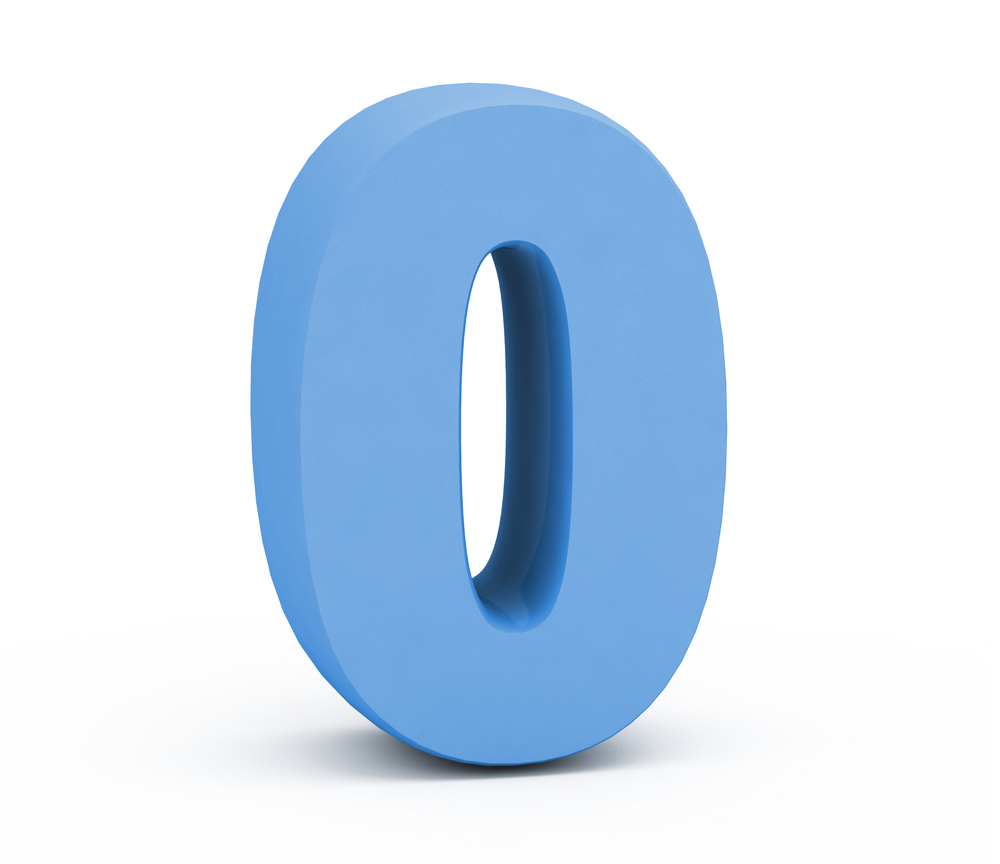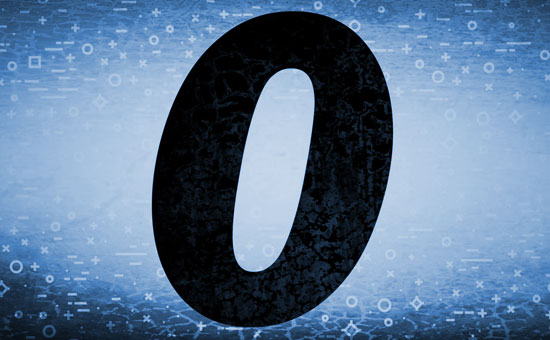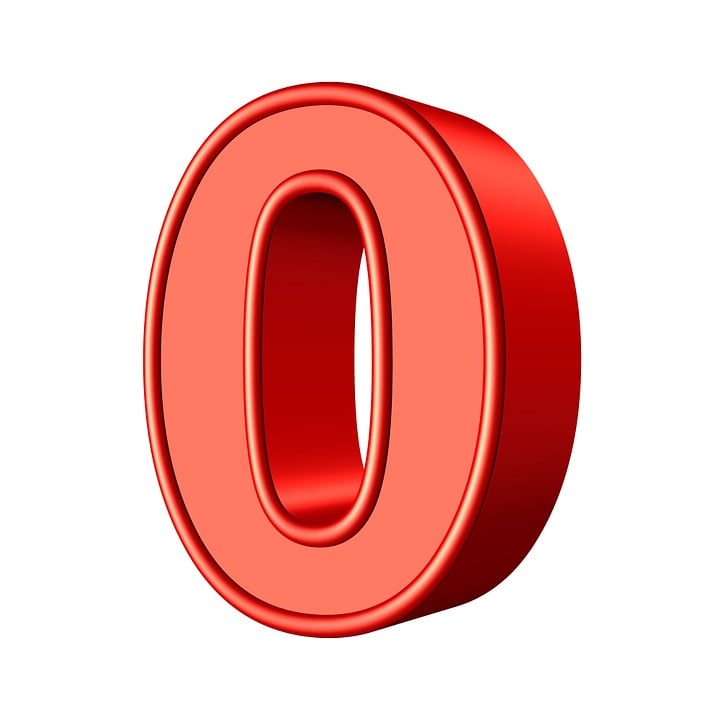Have you ever stopped to ponder something that seems so simple, yet sparks a quiet debate among people? One such thought often pops up when we talk about numbers: is zero, that unassuming little circle, truly an even number? It feels like a pretty straightforward question, but for some, it brings up a lot of head-scratching. We are, you know, going to clear up this common point of confusion once and for all, looking at how numbers work and where zero fits in.
For a good many folks, the idea of zero being even just feels a little bit off. After all, when we think of even numbers, our minds typically go to things like two, four, six, and so on – numbers we can easily split into two equal groups. Zero, with its representation of nothing at all, seems to defy that simple picture, doesn't it? It's a very interesting point to consider, how our everyday sense of numbers might differ from their more formal definitions.
Yet, when we look at the way numbers behave and how they are set up in the world of mathematics, the answer becomes quite clear. The characteristics that make a number "even" are quite specific, and zero, it turns out, fits every single one of them. So, in some respects, it's less about what feels right intuitively and more about sticking to the agreed-upon rules of how numbers operate. We'll explore this more fully, of course.
- How Old Is Aj Mclean
- How Much Is The Rothschild Family Worth
- Early Home Computers
- Danielle Cohn Nude
- Katie Sigmond Nudes
Table of Contents
- What Makes a Number Even - Is Zero an Even Number?
- Can Zero Really Be Divided by Two?
- Zero's Neighbors - Are They Important for Zero Being an Even Number?
- What About Zero's Unique Properties - Is Zero an Even Number?
- Why Do People Get Confused About Zero Being an Even Number?
What Makes a Number Even - Is Zero an Even Number?
When we talk about numbers being "even," we are, in fact, relying on a very specific idea. A number is considered even if you can divide it by two without having anything left over. Think about the number six, for instance; if you split six in half, you get three, with no bits or pieces remaining. That's a pretty good way to think about it, isn't it? This basic rule is what helps us sort numbers into their proper groups, either as even or as odd.
This simple rule is the foundation for a lot of what we do with numbers. It helps us predict patterns and understand how different numbers relate to one another. So, when we ask if zero is an even number, we really need to put it to this same test. Does zero, when you cut it in half, leave you with a clean result, or does it leave something messy behind? It's a rather straightforward check, honestly.
The concept of evenness also ties into how numbers are formed. An even number can always be thought of as two times some other whole number. For example, four is two times two, and ten is two times five. This idea, you know, gives us another way to look at whether zero fits the bill. If we can find a whole number that, when multiplied by two, gives us zero, then we have our answer. This is a pretty neat way to see it.
- Is Zendaya Left Handed
- Willow Harper Leak
- Fire Containment Barrier
- Vicki Schreck Nude
- Iran Gdp Ppp 2024 Imf
The Definition of an Even Number - Is Zero an Even Number?
Let's get a little more specific about what makes a number even. In the world of arithmetic, an even number is any whole number that can be expressed as two multiplied by another whole number. We often write this as "n equals two times k," where "n" is the number we're looking at and "k" is some other whole number. This rule, you see, is very important for how we categorize numbers.
So, if we take this definition and apply it to zero, what do we find? Can we find a whole number "k" that, when multiplied by two, gives us zero? Well, if we let "k" be zero itself, then two multiplied by zero does, in fact, equal zero. This makes zero, you know, fit the definition perfectly. It's a direct application of the rule, without any special exceptions needed.
This means zero shares all the usual characteristics of numbers that are considered even. It has what we call "even parity." The idea of parity is just a fancy way of saying whether a number is even or odd. And for zero, its parity is, quite clearly, even. It's a pretty fundamental point, and it helps to clear up some of the confusion people sometimes feel about zero being an even number.
Can Zero Really Be Divided by Two?
A big part of deciding if a number is even comes down to whether it can be split evenly by two. When we talk about splitting something evenly, we mean the result of the division must be a whole number, with no bits left over, no fractions, and no decimals. This is, you know, a very important part of the process. If there's any remainder, then the number isn't truly divisible by two in the way we need for it to be even.
Consider what happens when you take zero and divide it by two. If you have nothing and you split it into two equal groups, how much is in each group? The answer is still nothing. So, zero divided by two equals zero. And zero, of course, is a whole number. This outcome, you see, is a pretty strong indicator.
Because the result of dividing zero by two is a whole number (zero itself), it perfectly meets the condition for being divisible by two. This makes it an even number by definition. It's a pretty straightforward calculation, actually, and it helps to solidify zero's place in the family of even numbers. There's no real mystery here, just simple arithmetic.
How Does the Number Line Show Zero is an Even Number?
One of the easiest ways to get a feel for whether a number is even or odd is to look at how numbers are arranged on a number line. On a number line, numbers, you know, typically go back and forth between being odd and being even. You have an odd number, then an even number, then an odd, and so on. This pattern is a very helpful visual cue for understanding number properties.
If you pick any even number, say four, and then move one step to the left, you get three, which is odd. Move one step to the right, and you get five, also odd. This pattern holds true for all even numbers: they are always surrounded by odd numbers. This is a pretty reliable rule, honestly.
Now, let's look at zero on the number line. To its immediate left is negative one, which is an odd number. To its immediate right is positive one, also an odd number. Since zero sits right between two odd numbers, it fits the pattern of all other even numbers. This visual evidence, you see, is a powerful way to show that zero is, indeed, an even number. It's a very simple check that anyone can do.
Zero's Neighbors - Are They Important for Zero Being an Even Number?
The idea of a number's "neighbors" on the number line is more than just a visual trick; it's a fundamental property that helps define its parity. Every single even number, without exception, has an odd number directly next to it on both sides. This relationship, you know, is a very consistent one across the entire set of whole numbers. It's a pattern that never changes.
Take any even number you can think of, like twelve. To its left is eleven, which is odd. To its right is thirteen, also odd. This pattern is, you know, pretty easy to spot. It's a clear indicator of what it means to be an even number in the sequence of whole numbers. This consistent arrangement is a key piece of information.
Since zero also has odd numbers as its immediate neighbors (negative one and positive one), it behaves just like every other even number in this respect. This particular characteristic, you see, is a very strong piece of evidence for its evenness. It's not just a coincidence; it's part of the fundamental structure of how numbers are ordered and categorized. This makes it pretty clear, doesn't it?
What About Zero's Unique Properties - Is Zero an Even Number?
Zero is, in some ways, a very special number. It represents nothing, yet it is a place holder, and it is the starting point for counting up and down. Because of its unique qualities, people sometimes wonder if it might behave differently when it comes to being even or odd. It's a very fair question, considering how zero acts in other situations, like in multiplication or division, where it often has special rules.
For example, zero raised to any positive power is always zero. Think about zero to the fifth power; it's still just zero. This is a pretty unique trait, isn't it? However, when we consider whether zero is an even number, these other special behaviors do not change its fundamental parity. The definition of evenness, you see, is quite separate from these other mathematical operations.
The rules for even and odd numbers are based on divisibility by two, and zero fits that rule perfectly. Even though zero has some very particular traits that set it apart, its evenness is not one of them. It falls squarely into the category of numbers that can be split evenly by two. So, in a way, its uniqueness in other areas does not, you know, make it an exception here.
Why Do People Get Confused About Zero Being an Even Number?
It's quite common for people to feel a little bit puzzled about zero's status as an even number. Part of the confusion, you know, comes from how we first learn about numbers. We often start with positive numbers, and "even" usually means you can make pairs, which is harder to visualize with "nothing." This initial way of thinking can make zero seem like an outlier.
Another reason for the mix-up might be that zero does have some very particular behaviors in mathematics that are different from other numbers. For instance, you can't divide by zero, and zero raised to the power of zero is a topic that mathematicians sometimes debate. These unique aspects, you know, can make people think that zero might also be an exception when it comes to being even or odd.
Even some thinkers from the past had lively discussions about whether zero was truly a number at all, much like students today might wonder about other abstract mathematical concepts. This historical debate, you see, just goes to show that zero has always been a bit of a curious case. However, for all practical purposes and by the clear definitions we use in everyday math, zero is, without a doubt, an even number. Its ability to be divided by two without a remainder, and its place on the number line between two odd numbers, make its evenness quite clear. So, it's pretty much settled, really.
Related Resources:



Detail Author:
- Name : Sydney Sauer
- Username : ulices67
- Email : wcruickshank@gmail.com
- Birthdate : 1972-05-19
- Address : 415 Marquardt Rapid Lake Libbyfort, OH 14008-4102
- Phone : (818) 794-1410
- Company : Carroll and Sons
- Job : Bartender
- Bio : Omnis sapiente quae quasi aliquam et cupiditate nostrum. Et id autem ducimus accusamus. Non quo quibusdam laboriosam laborum voluptas ab.
Socials
instagram:
- url : https://instagram.com/budkertzmann
- username : budkertzmann
- bio : Qui voluptas reprehenderit minima animi ut. Ut quae voluptas omnis neque earum cupiditate.
- followers : 890
- following : 2855
facebook:
- url : https://facebook.com/kertzmannb
- username : kertzmannb
- bio : Reiciendis numquam magni quo ut enim officiis.
- followers : 3729
- following : 2874
linkedin:
- url : https://linkedin.com/in/bud6440
- username : bud6440
- bio : Ducimus autem magnam quia recusandae.
- followers : 2989
- following : 2240
twitter:
- url : https://twitter.com/bud.kertzmann
- username : bud.kertzmann
- bio : Velit autem inventore voluptatem voluptatem. Aut consequatur neque eligendi quia et nam. Ducimus a id molestiae nulla esse laudantium.
- followers : 1947
- following : 985